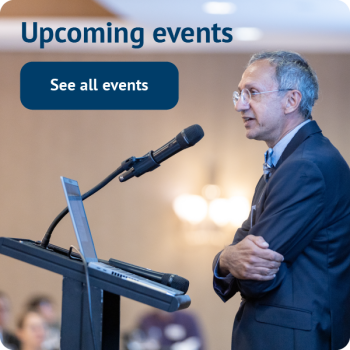National Reconciliation Week 2025: Support reconciliation through culturally safe healthcare initiatives
Bridging Now to Next, the theme for National Reconciliation Week 2025, reminds us that the past continues to shape our present—and that the actions we take today shape the future we create together.
Today the health and wellbeing outcomes of First Nations peoples continue to reflect the enduring impacts of Australia’s colonial past. The health and life expectancy gap between First Nations peoples and non-Indigenous Australians is shaped by a legacy of events, policies and inaction that has contributed to longstanding inequities.
As a PHN, we are bridging now to next by recognising and learning from the past to guide our vision for inclusive, high-quality, person-centred, and place-based health care for all Australians. Our commitment to reconciliation is reflected in our partnership with First Nations people and communities, as we work together toward an Australia where no gap exists in the opportunities, health outcomes and life expectancy of First Nations peoples and the broader population of Australia.
We envision an Australia where First Nations peoples enjoy long, healthy lives centred in culture, with equitable access to health care services that are prevention-focused, responsive, respectful, and culturally safe.
Reconciliation is about strengthening relationships between Aboriginal and Torres Strait Islander peoples and non-Indigenous peoples, for the benefit of all Australians.
National Reconciliation Week (NRW) is a time for all Australians to learn about our shared histories, cultures, and achievements, and to explore how each of us can contribute to achieving reconciliation in Australia.
—Reconciliation Australia,
The meaning behind National Reconciliation Week
National Reconciliation Week begins on May 27, commemorating the 1967 referendum, where the majority of Australians voted to remove discriminatory clauses about First Nations peoples from the Australian Constitution.
The week concludes on June 3, marking the anniversary of the 1992 Mabo decision — the judgment that overturned Australia as a ‘land belonging to no-one’ when it was declared as a possession of the British Crown in 1770. As a result of the Mabo decision, the High Court of Australia found that First Nations peoples around Australia continue to hold rights to their land and waters.
A range of activities aimed at promoting understanding and reconciliation are happening across Australia this week. Many organisations engage in events and programs that foster a deeper appreciation of our First Nations cultures and histories. These activities reflect on the collective journey and work still to be done towards achieving a more just, equitable, and reconciled Australia.
Supporting reconciliation through culturally safe healthcare initiatives
Your practice can take steps towards reconciliation through your commitment to the health and wellbeing of First Nations peoples and communities in our region. Discover more on our First Nations health webpage.
View local support services of First Nations peoples as well as available medical services for First Nations peoples via Brisbane South Health Pathways.
Elders program – Balgah binay
A notable local initiative is the Elders program, Balgah binay, delivered by Inala Wangarra. Named by Elders, Balgah binay means, "coming together to learn and be uplifted." The program provides Elders, their families, and carers with access to relevant health and aged care information and support, addressing their cultural, physical, mental, spiritual, emotional, and social needs.
Gunya Meta – First Nations Elders Healthy Ageing Program and First Nations Youth Support Program
Gunya Meta provide tailored information, support, and group activity sessions to promote healthy ageing and well-being for First Nations Elders.
Their Youth Support Program is a coordinated response service that can support First Nations peoples who are at risk of or impacted by suicide. Established referral pathways, and partnerships between services are provided to increase First Nations youth and their families' connection to traditional cultural and heritage.
My Health for Life program
My Health for Life (MH4L) program is a free initiative that emphasises lifestyle and wellbeing, aiming to empower participants to make healthy choices and reduce the risk of chronic diseases. Through learning and coaching, participants can enhance their everyday lives and maintain their health and wellbeing.
Join us in committing to reconciliation action
Brisbane South PHN is proudly committed to advancing reconciliation in all we do, guided by our (second) Stretch Reconciliation Action Plan (RAP) 2023-26. We invite you to read through our RAP and join us in our journey towards reconciliation.
More information and resources
Enrol in our free cultural awareness training for primary care, allied health and commissioned services.
Read our 2nd Stretch Reconciliation Action Plan (RAP).
Visit Brisbane South HealthPathways to access their Aboriginal and Torres Strait Islander Health pathways.
Visit RACGP’s Aboriginal and Torres Strait Islander Health page.





